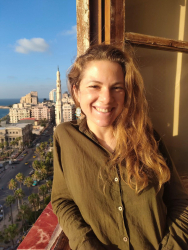The YPL programme seeks to address a common challenge in the medical field – the lack of leadership training. Many physicians are thrust into leadership positions without the necessary qualifications or preparation. This gap highlights the pressing need for healthcare professionals to acquire leadership skills alongside their medical knowledge. To bridge this gap, the Young Physician Leaders (YPL) programme was launched in 2011 by the InterAcademy Partnership (IAP) in conjunction with the World Health Summit and the M8 Alliance of Academic Health Centres and Medical Universities.
The Young Physician Leaders participating in the programme come from diverse backgrounds and nations: the 18 participants of the 2023 edition came from 15 countries and four continents!
During the programme, they engage in a series of workshops and discussions designed to enhance their leadership capabilities. Topics covered include team decision-making, understanding and expanding leadership styles, ambidextrous leadership, peer consulting and effective communication strategies. These sessions are intended to empower the participants with a broader perspective and equip them with the tools to navigate complex healthcare challenges.
The YPL programme extends beyond classroom learning, as it prepares participants for the World Health Summit (WHS), where they held a session titled 'Effective Leaders for Effective Health Systems'. The WHS platform allows the YPL to interact with leaders in the healthcare field, gaining valuable insights and networking opportunities.
Watch the YPL session from the WHS 2023 here:
Lessons learnt:
It's clear from the discussion that leadership training for healthcare professionals, including young physicians, is essential to improve healthcare systems and patient outcomes. Here are some steps that could be taken to incorporate leadership training into formal medical education and promote the development of future leaders:
-
Curriculum Integration: Medical schools should integrate leadership training into their curricula. This can be done by adding courses or modules focused on leadership, communication and management skills. These courses should cover topics such as teamwork, conflict resolution and decision-making.
-
Mentorship Programmes: Establish mentorship programmes that connect experienced healthcare leaders with medical students. This provides students with role models and guidance as they develop their leadership skills.
-
Experiential Learning: Provide opportunities for students to gain practical leadership experience. This can include involvement in student-run clinics, participation in quality improvement projects and taking on leadership roles within student organizations.
-
Interdisciplinary Training: Encourage collaboration between different healthcare professions. This can help students learn how to work effectively in interdisciplinary teams, which is crucial for modern healthcare.
-
Soft Skills Development: In addition to clinical skills, emphasize the development of soft skills such as communication, empathy and cultural competence. These skills are vital for effective leadership.
-
Global Perspective: Promote an understanding of the global healthcare landscape and encourage students to think about the broader societal and ethical issues related to healthcare.
-
Continuous Learning: Encourage lifelong learning by providing resources for healthcare professionals to continue their leadership development throughout their careers.
-
Advocacy and Policy Engagement: Educate medical students about the importance of advocating for policies that support healthcare system improvement. Encourage them to get involved in health policy discussions and initiatives.
-
Assessment and Evaluation: Implement mechanisms to assess and evaluate the leadership skills of medical students and provide constructive feedback for improvement.
-
Research and Innovation: Promote research and innovation in healthcare leadership. Encourage students to explore new approaches and solutions to healthcare challenges.
-
Collaboration with Healthcare Organizations: Establish partnerships with healthcare organizations to provide students with exposure to real-world leadership challenges and opportunities to work with experienced leaders.
-
Funding and Support: Allocate resources and support from medical schools and educational institutions to ensure that leadership training programmes are effectively implemented.
These steps will help medical students and young physicians develop the leadership skills necessary to address the complex challenges in healthcare systems and contribute to the delivery of high-quality care. Additionally, it's essential to create a culture that values leadership and supports the growth of future healthcare leaders.
Read more:

